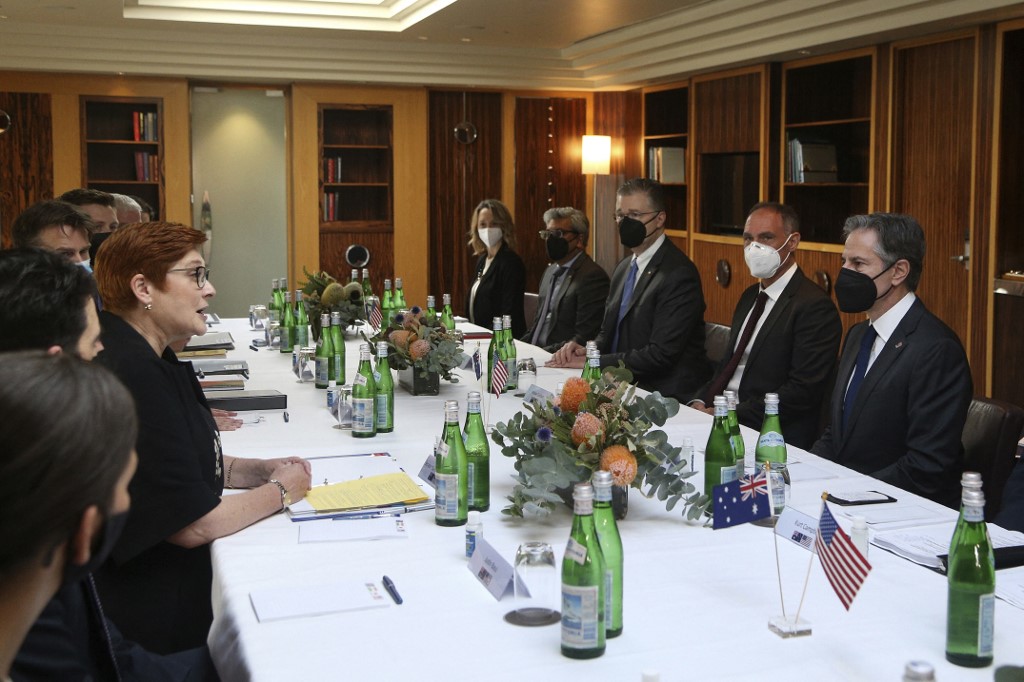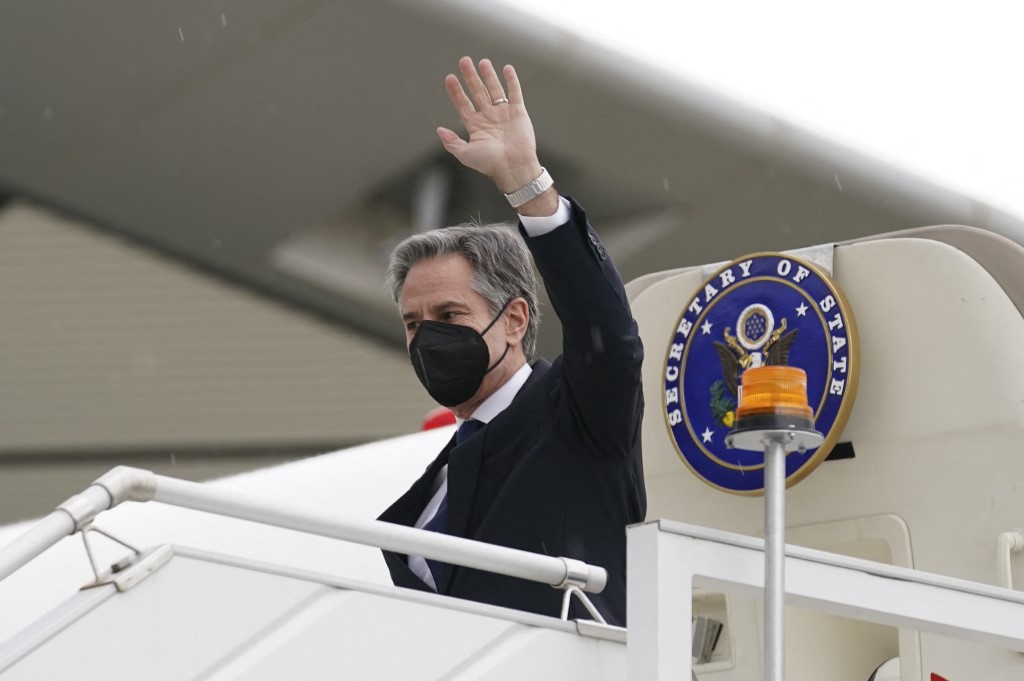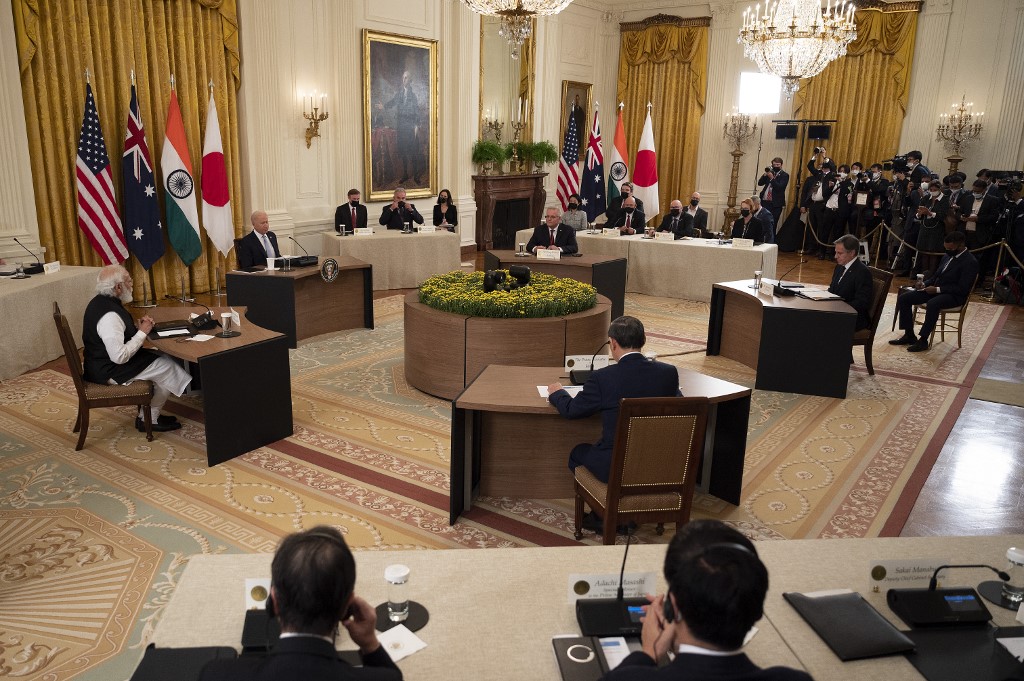
by Paul HANDLEY
Agence France-Presse
MELBOURNE, Australia (AFP) – The top diplomats of the United States, Australia, Japan and India opened talks in Melbourne Friday on deepening their Quad alliance, hoping to blunt China’s expanding power across the Asia-Pacific region.
“Together we are a vital network of liberal democracies committed to practical cooperation and to ensuring all Indo-Pacific nations, large and small, are able to make their own strategic decisions, free from coercion,” Australia’s Foreign Minister Marise Payne said Friday ahead of the meetings.
US Secretary of State Antony Blinken said that even though Russia’s threat to Ukraine occupies Washington right now, the longer term challenge is China’s advance, challenging the “traditional order.”

“To my mind, there’s little doubt that China’s ambition over time is to be the leading military, economic, diplomatic and political power not just in the region but in the world,” he told The Australian newspaper on the eve of the talks.
The Quad was first launched in 2007, but only took root a decade later after China aggressively projected its military power into the South China Sea, and following violent border clashes with India.
While the four held joint naval exercises in 2020 in the Bay of Bengal, the meetings in Melbourne are aimed at deepening cooperation across other fields like fighting Covid-19 and coordinating on critical information technology issues, including the global rollout of 5G telecommunications networks.
In January Japanese Foreign Minister Hayashi told the country’s legislature that the Quad was about “establishing a free and open order based on the rule of law” in the Indo-Pacific region.
While China has been the focus of the Quad, the four countries say the Melbourne meeting is about practical cooperation and, in Blinken’s words, an “affirmative vision” on a range of challenges, such as agreeing on technology standards, and cooperating on health issues and climate change.
The Covid-19 pandemic has been central to giving the grouping greater meaning beyond its image of trying to “contain” China.

The four countries used the Quad framework to commit to distributing 1.3 billion vaccine doses, with more than 500 million already delivered, according to Payne.
As for Washington, the meeting is a chance to reaffirm its decision to make Asia and the Pacific the centrepiece of foreign and defense policy, even as the White House and Pentagon are currently consumed by the potential for a Russian invasion of Ukraine.
While Ukraine is “front and center” in Washington right now, Blinken said ahead of his arrival in Australia: “The world is a big place.”
“Our interests are global and you all know very well the focus that we put on the Asia-Pacific and the Indo-Pacific regions,” he said.
© Agence France-Presse








